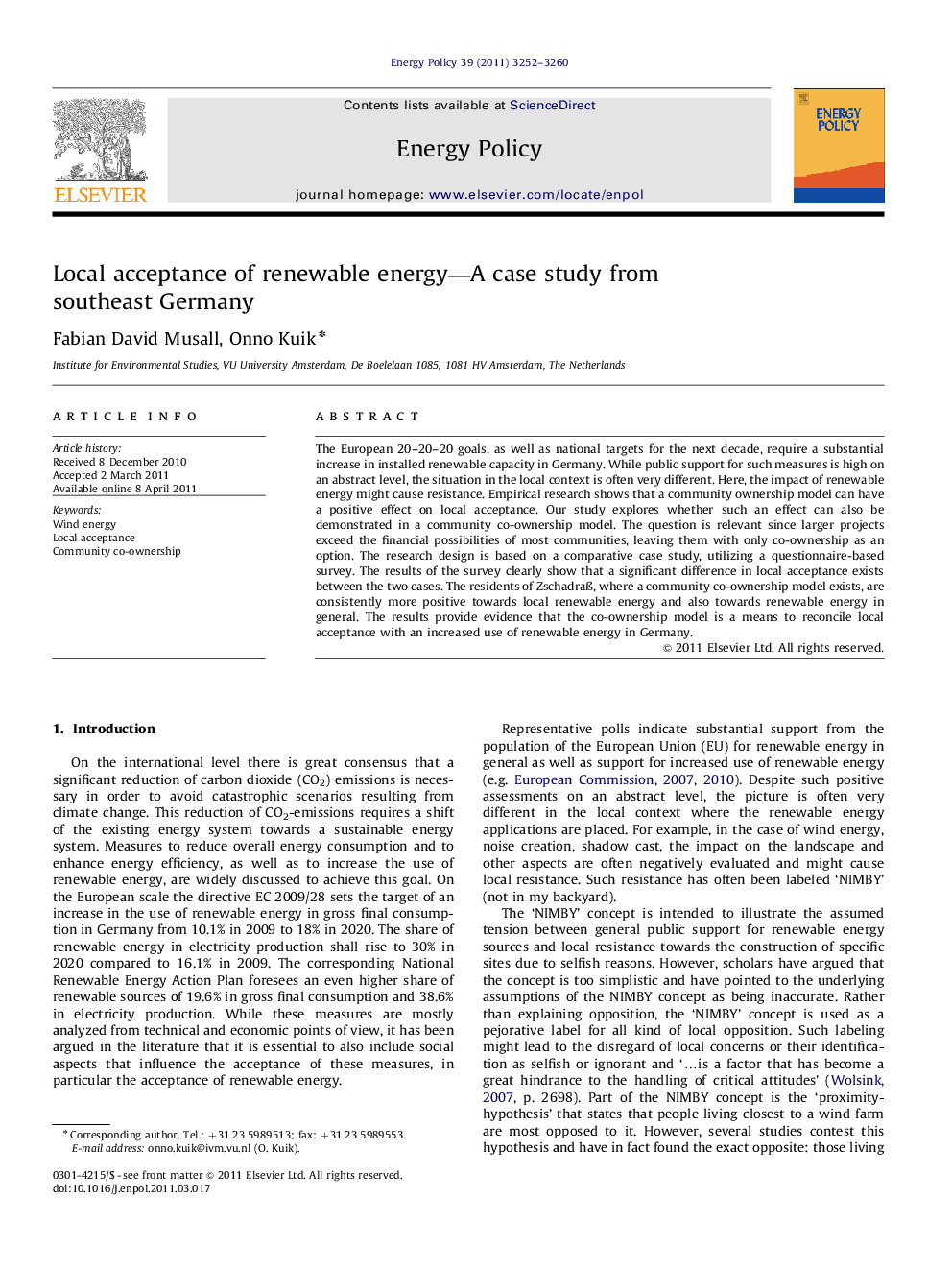| Article ID | Journal | Published Year | Pages | File Type |
|---|---|---|---|---|
| 994910 | Energy Policy | 2011 | 9 Pages |
The European 20–20–20 goals, as well as national targets for the next decade, require a substantial increase in installed renewable capacity in Germany. While public support for such measures is high on an abstract level, the situation in the local context is often very different. Here, the impact of renewable energy might cause resistance. Empirical research shows that a community ownership model can have a positive effect on local acceptance. Our study explores whether such an effect can also be demonstrated in a community co-ownership model. The question is relevant since larger projects exceed the financial possibilities of most communities, leaving them with only co-ownership as an option. The research design is based on a comparative case study, utilizing a questionnaire-based survey. The results of the survey clearly show that a significant difference in local acceptance exists between the two cases. The residents of Zschadraß, where a community co-ownership model exists, are consistently more positive towards local renewable energy and also towards renewable energy in general. The results provide evidence that the co-ownership model is a means to reconcile local acceptance with an increased use of renewable energy in Germany.
► We study if community co-ownership affects local acceptance of renewable energy ► We interviewed residents from two villages with different ownership models ► Residents with co-ownership are consistently more positive towards renewable energy ► Local acceptance is higher with co-ownership than with a private ownership model.
